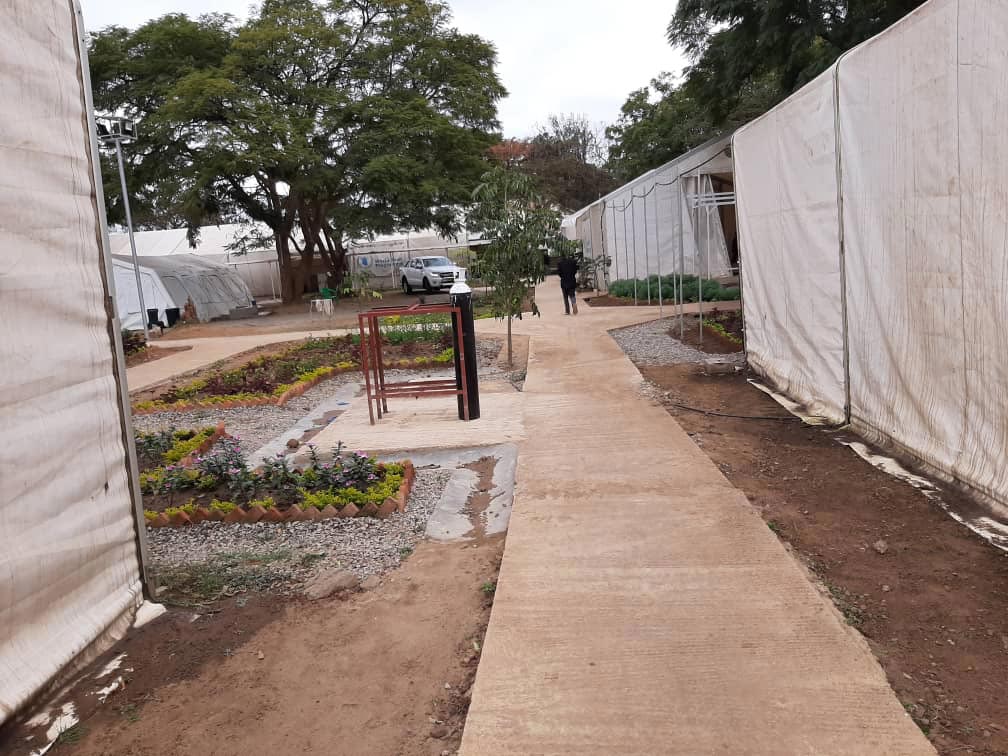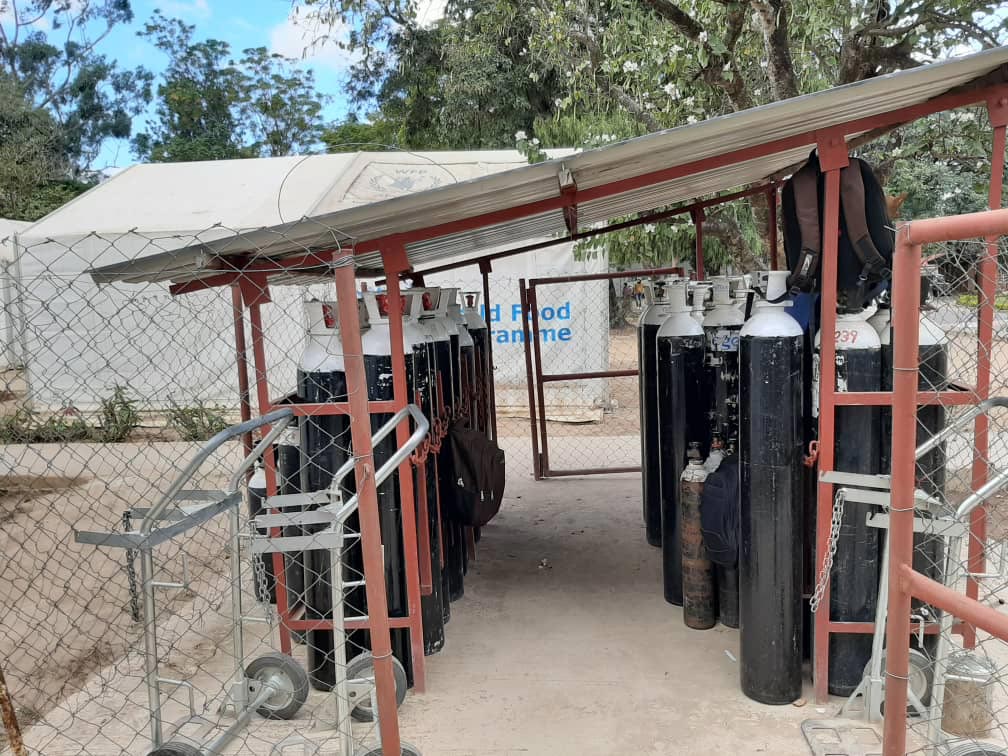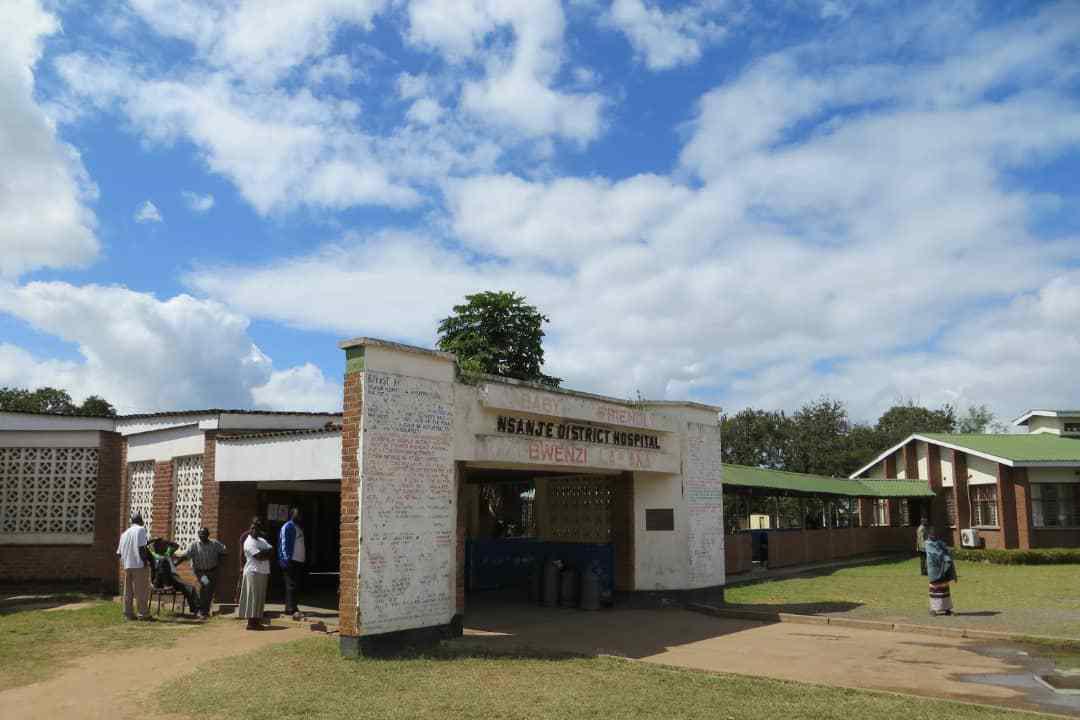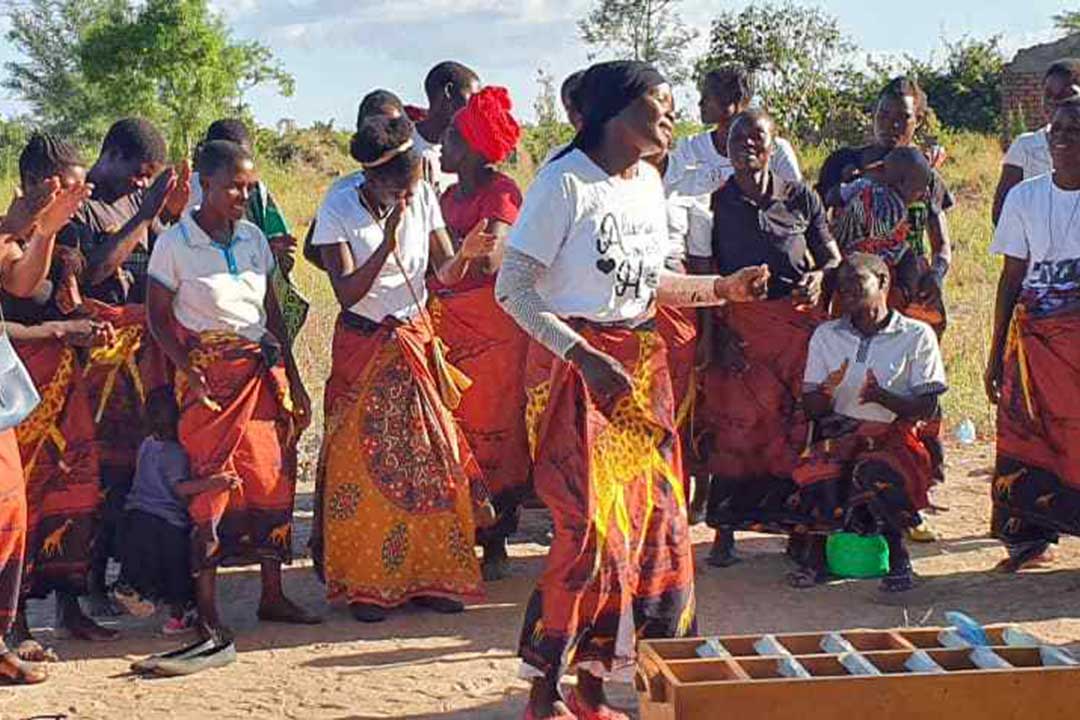Malawi health workers lead in COVID-19 vaccination
Malawi has vaccinated 83% of its frontline health care workers against COVID-19, pushing them to the forefront of the country's vaccination efforts.
- 16 August 2022
- 5 min read
- by Josephine Chinele

When Malawi’s COVID-19 vaccination programme kicked off in March 2021, the priority was frontline health workers. With 83% of this key vulnerable population now protected, the relief is palpable.
“Seeing a lot of people, including family members, lose lives wasn’t a good feeling. Being a frontliner doubles my risk,” says Memory Ngwira, a senior Nursing Officer at Queen Elizabeth Central Hospital (QECH). “The sight of people struggling to breathe, others breathing their last breath and the corridor trolley traffic of wrapped dead bodies was order of day at the peak of the pandemic in 2021.”
“The COVID-19 vaccine is a relief to us. We have established that over 95% of the patients admitted to health facilities and dying of COVID-19 hadn’t received any vaccine. This is an indication of the effectiveness of this vaccine.”
Blantyre’s QECH, one of Malawi’s major referral hospitals and a major COVID-19 admission site, was the busiest health facility in the country at the peak of the pandemic in January 2021. The live amber ambulance lights and sirens constantly flared and blared in and out of QECH’s premises.

“As a frontline health worker, I was overwhelmed, stressed and afraid. I even had to nurse a relative till her death, which was really a bad experience for me,” Ngwira recollects.
She also recalls having less than ideal sleeping hours as the health workers were stretched to cover for colleagues who tested positive and needed to be isolated, which made the workload high.
“The most difficult part of my work experience was when people who aren’t in the medical field avoided me because I work at the hospital. Such stigma was bad because we also needed support from the community we live in,” adds Ngwira, who got infected with COVID-19 in the line of duty.
The saviour jab
Ngwira experienced mild COVID-19 symptoms. “I wasn’t scared as before knowing that I could fight this. I had already received two doses of the jab. The vaccines have reduced transmission of COVID-19 since more people have been vaccinated now.”
Blantyre-based Health Surveillance Assistant (HSA) Alick Phiri, who also worked at QECH at the peak of the pandemic, says that the vaccine has given him and his family safety.
“The fact that my family knew my job was mostly dealing with taking care of dead bodies, which included disinfecting, wrapping, and burying them, brought a lot of discomfort. I took off my clothes outside my house, going straight to the bath, and my clothes were washed immediately,” says Phiri.
“I have always known that there are risks associated with my job, especially during this pandemic. But I feel safer now. I know I can have COVID-19 but it won’t be as severe. In fact, I had it already in the third wave in 2021,” he reveals.
QECH Hospital Director, Dr Samson Mndolo says that most of the vaccinated staff feel safer to work in the hospital because they believe they have been protected from the virus.

“The vaccine has also helped in reducing hospital admissions for COVID-19 patients. This has reduced the workload for staff and also promoted their safety.”
Dr Mndolo however admits that there are still pockets of vaccine hesitancy among health workers, adding that the facility has conducted more training for health workers this year to give them more information on the COVID-19 vaccine and allow them to ask questions.
Have you read?
“This is one way of inspiring those who didn’t get the vaccine to get vaccinated. The training also empowers those who got vaccinated to inspire more staff to get vaccinated,” he says.
Dr Mndolo laments the closure of the QECH vaccination centre in June 2021. The space was allocated to COVID-19 in-patients instead.
“This vaccination centre was located within the hospital to cater for health workers in the very first week of the vaccination process in March 2020. Each department was allocated time to go for the vaccination. Throughout the vaccination exercise, staff were prioritised at the vaccination centre. Since the closure of this centre it’s been hard to follow the trends related to COVID-19 vaccination for health workers at QECH. We may need to do a survey on this,” he observes.
Health Expert at Prime Health Consulting and Services, Prof Maureen Chirwa, argues the 17% of health workers yet to be vaccinated must be prioritised. “Just under 20% looks small but it’s a big number. This means there are health workers prepared to vaccinate others but not themselves. They may have been given the opportunity to get vaccinated, but haven’t been educated enough on the need for the vaccine.”
Prof Chirwa notes that health workers are human and have beliefs just like everybody else, which could have overtaken their professional knowledge on the need for the vaccine.
“The authorities should realise that although they know about the importance of vaccines and what they are for, they remain individuals with beliefs to be addressed. Health education is meant for everybody, not only for non-health workers. There is a need for health education mechanisms for staff. It’s important for heads of departments to actually know who has been vaccinated and who hasn’t in order to find out why they haven’t been vaccinated and provide them with the support they require to be vaccinated,” she suggests.
Prof Chirwa adds, “For them to know that this percentage has been vaccinated, they must have had records. The unvaccinated need to be followed up. We should all know our responsibility and the importance of taking appropriate steps and actions to end COVID-19.”
“The COVID-19 vaccine is a relief to us. We have established that over 95% of the patients admitted to health facilities and dying of COVID-19 hadn’t received any vaccine. This is an indication of the effectiveness of this vaccine,” says Ministry of Health spokesperson, Adrian Chikumbe.

He says the Ministry would have loved to have a 100% health worker vaccination rate, but the ministry can’t force its workforce to be vaccinated: it is a voluntary exercise.









